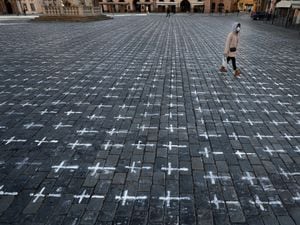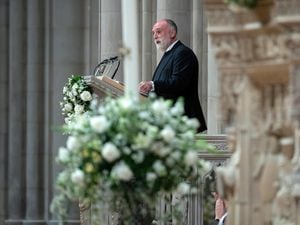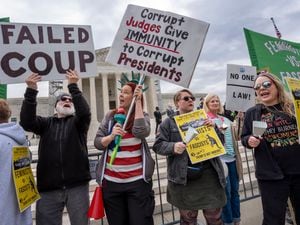Bells toll to honour Czech virus victims
A 95-year-old man, who is the first known Czech victim, died on March 22 2020.

Bells have tolled across the Czech Republic to honour those who have died of Covid-19 in one of the hardest-hit European Union countries.
A 95-year-old man, who is the first known Czech victim, died on March 22 2020 at Prague’s Bulovka hospital.
The death toll has reached almost 25,000 since the start of the pandemic in the nation of 10.7 million.
Coronavirus infections have been on the decline since the government imposed a tight lockdown earlier this month, but new cases and death rates still remain high.

Petr Pospichal, a former anti-Communist dissident who helped organise the remembrance, told Czech public radio that it was the right thing to do for people to observe a minute’s silence wherever they were.
Mr Pospichal said it is also necessary to realise that the pandemic is not over yet and people are still dying.
The country has almost 1.5 million confirmed cases, and 24,810 deaths.
Meanwhile, Poland’s prime minster said the government is seeing a significant increase in people wanting AstraZeneca’s coronavirus vaccine.
“I received a report that there are far more people willing to be vaccinated with AstraZeneca,” Prime Minister Mateusz Morawiecki said during a visit to a new temporary Covid-19 hospital in Radom. “This is very good news.”
Poland has been ramping up pandemic restrictions in recent weeks amid a dramatic spike in the number of new coronavirus infections.

Last week, many Poles cancelled or did not show up for appointments to receive the AstraZeneca shot amid reports of rare blood clots. On Thursday, the European Medicines Agency said the vaccine does not increase the overall incidence of blood clots, though it could not rule out a link to a small number of rare clots.
In Lithuania, the president, prime minister and speaker of the parliament of the Baltic country all rolled up their sleeves on Monday in a public move to boost trust in the AstraZeneca jab.
Last week, the Lithuanian health ministry halted the vaccine but authorised it again nationwide two days later.
“I encourage our people not to linger any longer and get the jab with the vaccine of their preference” said President Gitranas Nauseda. He and Ingrida Simonyte and Viktorija Cmilyte Nielsen – respectively the prime minister and the speaker of the 141-member Seimas assembly – received the vaccine.
Lithuania has reported more than 209,000 cases and 3,476 deaths from Covid-19 since the start of pandemic in 2020. A massive vaccination campaign is planned to start later this spring.





